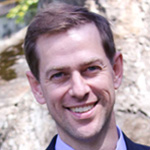

Imagine an entire college rooted in wonder; a whole course of study based on your questions. Not only would you be allowed to question, you’d be required to do so. If you can imagine that, then you’ll understand the Templeton Honors College.
Sometimes questions are misunderstood as a type of skepticism, but this isn’t so. Questioning begins not in doubt but in wonder, which is a type of love. Wonder indicates that the world is full of meaning, truth, goodness, and beauty—“charged,” as the poet Hopkins said, “with the grandeur of God.”
Wonder loves what is good, but requires also an admission of ignorance. In wonder we admit that we do not yet know, we do not yet fully understand. Such honesty bears fruit. For one thing, character develops. Living in the truth takes courage, moderation, wisdom, justice—virtues which grow and strengthen as you wonder. Aristotle had a term for such a person, the spoudaios, or “serious person” who lived with the integrity and nobility engendered by a life of truth.
Good action follows as well. To make the world better in ways that really matter takes serious and thoughtful people. The more you develop your capacity to question, the more good you can do, and with consequences far beyond your life.
Questions are also acts of praise. God and his world are ordered, intelligible, and beautiful. Responding with indifference or detachment misunderstands what God is like; a life of wonder proclaims commitment to the honor of God. It reveals, too, human dignity, for in questioning the ultimate things we reveal ourselves as created to know and enjoy God forever.
The Templeton Honors College is a community rooted in shared questions. The Christian tradition has always encouraged that faith should seek understanding—fides quarens intellectum—and we seek to be faithful to that calling, to praise God, to serve the world, and to develop our character by caring enough to question.
 Author:
Author:
Dr. RJ Snell
Former Associate Professor of Philosophy at Eastern University
Former Executive Director of the Agora Institute








